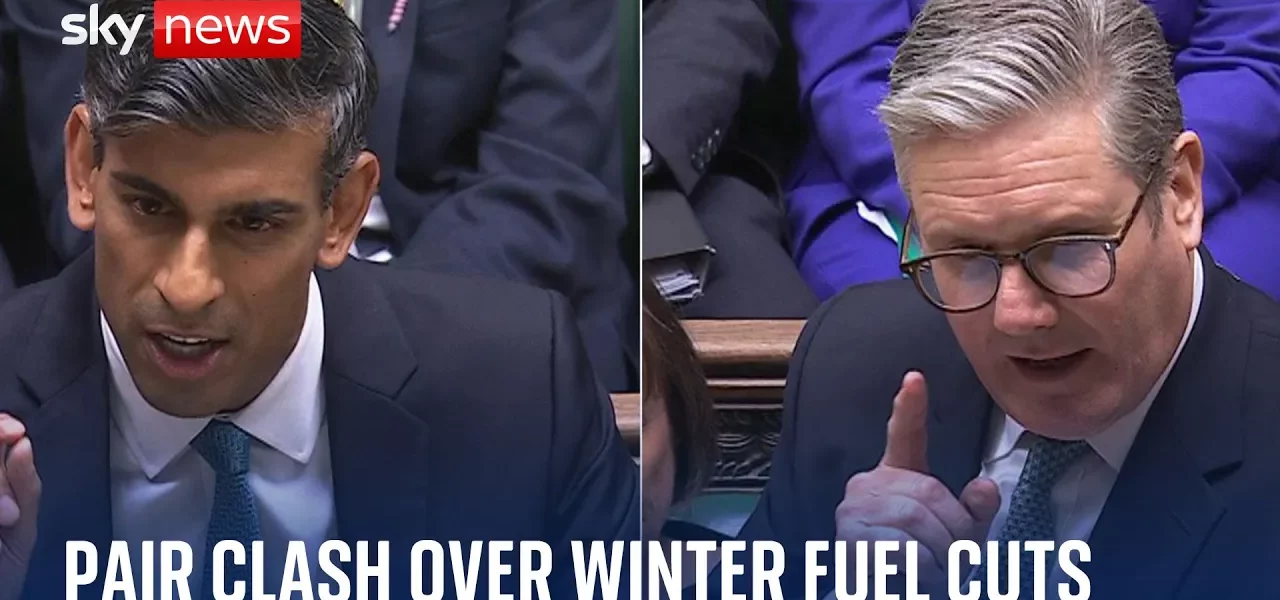Parliamentary Debate on Winter Fuel Payment: Implications for Pensioners and Farmers

This article explores the recent discussions in the UK Parliament regarding the winter fuel payment cuts affecting over 10 million British pensioners, including the economic implications and the government’s response to the situation.
Introduction
The recent parliamentary debate has raised significant concerns regarding the decision to remove winter fuel payments for over 10 million British pensioners, a move that has sparked discussions about its implications on the elderly population’s financial stability. With many pensioners relying on these payments to manage their living costs during the colder months, the debate not only highlights the immediate effects on individuals but also reveals broader economic ramifications, including the government’s fiscal policies and priorities. In this article, we will dissect the key points raised during the debate and the potential outcomes of the government’s choices.
The Impact of Cutting Winter Fuel Payments
The decision to cut winter fuel payments has been met with widespread criticism. Below are the main points of contention regarding this policy:
Financial Strain on Pensioners
Many pensioners, including those with incomes as low as £13,000, will face increased financial strain due to the removal of these payments. This decision may lead to:
- Increased energy poverty among the elderly.
- Potential health risks associated with heating inadequacies.
- Higher reliance on social services and community support.
Government’s Responsibility and Accountability
Critics, including members of the opposition, have pointed out the government’s responsibility in creating a “£22 billion black hole” in public finances. This situation raises questions such as:
- What measures are being taken to address this financial gap?
- How will the government justify the cutback in essential support for vulnerable populations?
The Role of Economic Policies
During the debate, the Prime Minister emphasized the government’s need to stabilize the economy amidst challenging circumstances. Key economic policies discussed include:
Triple Lock on Pensions
The Triple Lock policy is designed to ensure that pensions keep pace with inflation. The government argues that maintaining this policy can help offset any losses from the winter fuel payment cuts.
Mitigation Efforts
In response to the financial challenges, the government has proposed various mitigation efforts, including:
- Increasing pension credits.
- Adjusting housing benefits.
- Implementing targeted support for the most vulnerable.
Food Security and Support for Farmers
In tandem with the discussion on pensioners, the debate also touched upon food security and the role of British farmers. The importance of supporting local agriculture was emphasized, especially in light of global volatility. Key points include:
National Food Security Target
The National Farmers’ Union (NFU) proposed establishing a national food security target to ensure reliable food production. The government’s response to this proposal remains crucial for:
- Safeguarding domestic food production.
- Enhancing rural economies.
- Supporting local farmers in their operations.
Land Use Protections
The debate also raised concerns about land use, particularly regarding the protection of productive farmland. The government is urged to ensure that:
- Land designated for food production is not repurposed for less critical uses.
- Independent assessments of land quality are conducted to prevent conflicts of interest.
Conclusion
The recent parliamentary debate underscores the critical choices facing the UK government regarding support for pensioners and farmers. The removal of winter fuel payments poses significant risks for elderly citizens, while the emphasis on food security reflects a broader understanding of national priorities. As these discussions continue, it is essential for the government to be transparent about its impact assessments and the long-term implications of its economic strategies. We encourage readers to stay informed on these issues and to engage in discussions about the future of support for vulnerable populations in the UK.
For further insights, check out our related articles on economic policies affecting pensioners and the importance of food security in the UK.
“`




